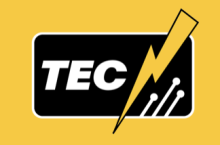
As the Fiber-to-the-Home (FTTH) project moves along in Traverse City, Michigan, utility board members are establishing the elements to set the service apart from other Internet access options in the community. The Record-Eagle reports that the board will decide in March on rates and that they've already chosen a name and logo.
Brand Recognition
The new service will be TCLP fiber and their tagline will be "Your Community Network." Traverse City Light & Power (TCL&P) are banking on the connection to their municipal electric utility. TCL&P will receive help marketing the service from Fujitsu, the company hired by Traverse City to design and operate the network.
Fujitsu Network Communications Marketing Lead Lori Butler said the name draws on the brand recognition the utility already has, while differentiating the new enterprise. The tagline “Your Community Network” emphasizes the public utility’s mission and the fact that it’s a community-owned network, she said.
Butler said the proposed logo also draws on the familiar, adding the word “fiber” and the tagline to the existing network, plus a strand of fiber optic cable. She showed the board a few proposed color combinations, and they ultimately gravitated toward a blue and yellow design similar to the existing logo, with a darker blue added as an accent.
Fujitsu also recommended rates, which will be approved by the utility board in March:
Fujitsu...suggested [basic] rates from $59.99 per month for residential customers to $149.99 a month for commercial customers. Those rates would buy download and upload speeds of 200 megabits per second residential; one gigabit per second commercial.
Scott Menhart, TCL&P chief information technology officer, said 200 megabits per second is twice as fast as what most area commercial providers offer in their base package, and they typically offer upload speeds of just 10 megabits per second.
The higher upload speed will matter for customers as people put more and more devices online, Fujitsu Network Communications broadband operations head Robert Worden said. He cited a household average of 11 devices — and said that’s bound to rise, factoring in smartphones, security services with streaming doorbell cameras and smart TVs boasting ever-higher resolutions.
“Does everybody need that every minute of every day? No, but are they going to enjoy it when they’ve got it? You bet, because it’s going to be on, it’s going to be available and it’s going to have all the capacity you need,” he said.
Proposed broadband rates (symmetrical):
Residential:
- 200 Mbps: $59.99 per month
- 500 Mbps: $69.99 per month
- 1 Gbps: $89.99 per month
Commercial:
- 500 Mbps: $99.99 per month
- 1 Gbps: $149.99 per month
Voice:
- $14.99 per residential line
- $24.99 per commercial line
TCL&P hopes to have the first subscribers connected and ready for service in May.







